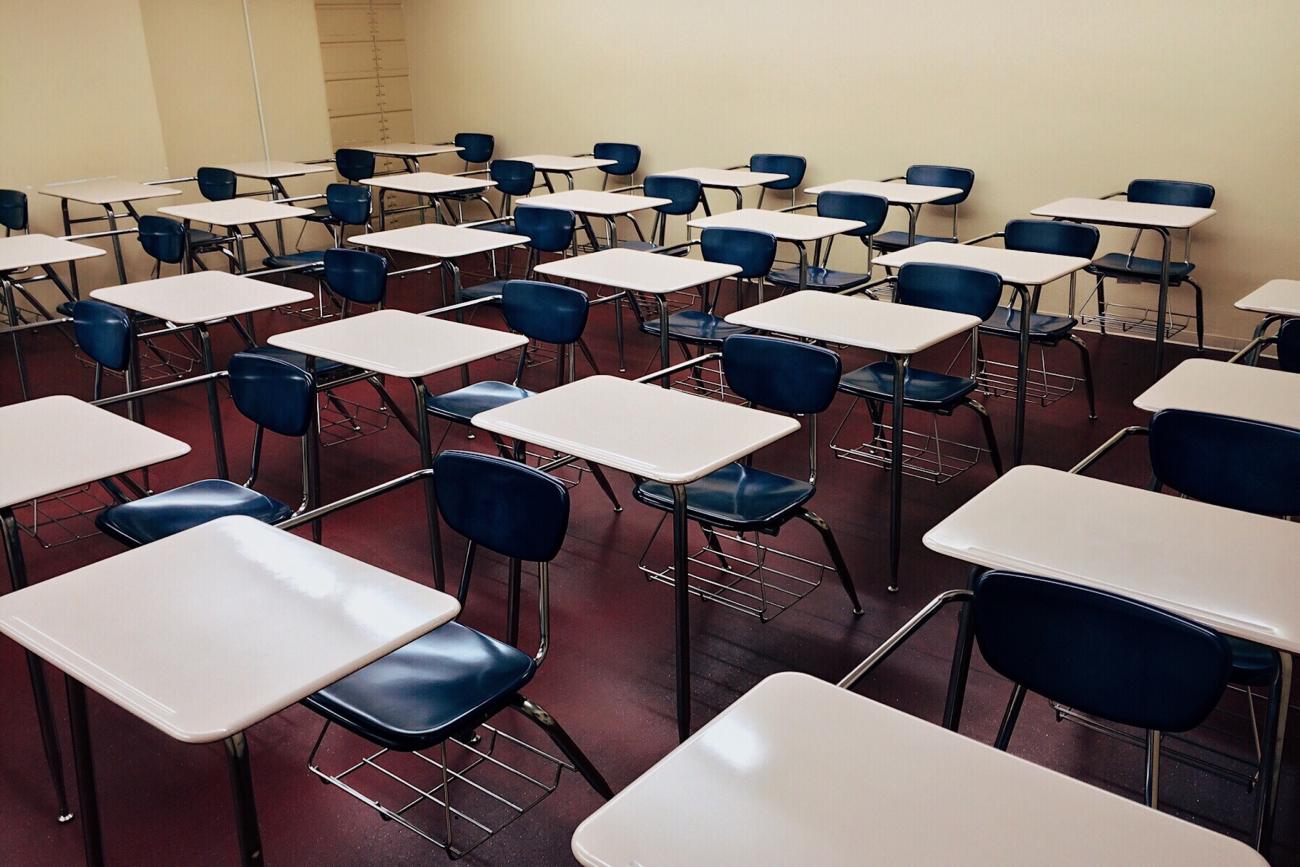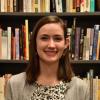The Murray and Sabina Zemel z"l Educators Conference on the Holocaust and Genocide aims to aid Arizona teachers in building programs, developing curricula, and sharing best practices in educating on the Holocaust and other genocides.
October 25, 2022 | 10 a.m. - 4 p.m. | ASU Tempe Campus
The conference is free and open to the public. Lunch is included.
The public is invited to register for the keynote address to be held at Mirabella at ASU at 3 p.m.
The first 50 registrants will receive funding to cover a substitute teacher.
Once we surpass 50, registrants will be placed on a wait list and contacted if they receive funding.
Schedule
Nationalism, Violence, and Genocide in an Era of Climate Change
Alex Alvarez, Northern Arizona University
Climate change is increasingly challenging the ability of communities and nations to cope and adapt to new environmental conditions. The focus of this presentation is on exploring some of the ways in which climate change heightens the risk for war and genocide as well as highlighting how our understanding of the Holocaust and other genocides can help us better understand the way in which climate induced stresses will contribute to the development of exclusionary forms of nationalism as conflict over resources, borders, and displaced populations become more prevalent.
About the speaker: Dr. Alex Alvarez is a Professor in the Department of Criminology and Criminal Justice at Northern Arizona University. He was the founding Director of the Martin-Springer Institute for Teaching the Holocaust, Tolerance, and Humanitarian Values and has also served as the Ida E. King Distinguished Visiting Scholar in Holocaust and Genocide Studies at Stockton University. He studies collective and interpersonal violence. His books include Governments, Citizens, and Genocide; Murder American Style; Violence: The Enduring Problem; Genocidal Crimes; Native America and the Question of Genocide; and Unstable Ground: Climate Change, Conflict, and Genocide. He served as an editor for the journal Violence and Victims, was a founding co-editor of Genocide Studies and Prevention, and is an editor for Genocide Studies International. He has been invited to speak and present his research across the U.S. and in various countries such as Austria, Bosnia, Canada, England, Germany, Lithuania, the Netherlands, and Sweden.
Location: Mirabella at ASU | 65 E University Dr, Tempe, AZ 85281
Lessons from the Holocaust Today – Preventing Genocide
Ambassador Edward O'Donnell
Ambassador (ret) Edward O’Donnell, former U.S. senior diplomat and Special Envoy for Holocaust Issues will discuss the Holocaust legacy and responsibility, focusing on what it means today for diplomacy between countries – the United States, Germany, Austria, France and other countries where the Holocaust occurred. The Holocaust is history and also it is about the remaining unresolved issues of the Holocaust such as justice and restitution for Holocaust survivors and their families. Today and in the future, the importance of remembrance and education about the Holocaust and the lessons of the Holocaust relate to current human rights violations, crimes against humanity and Genocide.
About the speaker: Ambassador O’Donnell retired from the career U.S. Foreign Service, after 43 years in Latin America, German-speaking Europe, and Afghanistan. He was a negotiating Ambassador for Holocaust issues and Fighting Anti-Semitism, Executive Assistant to three Under Secretaries and Special Assistant on the Policy Planning Staff. O’Donnell served in the active U.S. Army Reserve for 30 years with tours in Germany, Panama and the United States.
Ambassador O’Donnell is a Co-Founder of the ASU Lab for Leadership, Diplomacy and National Security and is a Professor of Practice in the School of Politics and Global Studies and the Barrett Honors College. He teaches ASU graduate courses on: The Holocaust and WW II Today, Diplomacy – Preventing Genocide, Diplomacy in Action, the Embassy Country Team and International Negotiations. He is on the Board of the Genocide Awareness Week (2022).
Ambassador O’Donnell is from Memphis, Tennessee, was graduated with a Bachelor of Arts in History from Southern Methodist University, received a Master of Arts in International Studies from American University and studied economics at the University of Heidelberg in Germany.
Teaching About Genocides After the Holocaust
Kim Klett, Dobson High School
The recent legislation requiring Holocaust education also requires the teaching of other genocides. But what does that look like in the ELA or social studies classroom? This session will provide resources to help teach about a variety of genocides, from Rwanda and Bosnia to Burma and Darfur, and participants will walk through one specific lesson together.
About the speaker: Kim Klett has taught English at Dobson High School since 1991. There, she developed a semester-long Holocaust Literature course, which she began teaching in 2000, and is now year-long. She also teachers an introductory class on Holocaust history at Scottsdale Community College. Klett is involved in Holocaust education through her work as a Museum Teacher Fellow ('03) with the United States Holocaust Memorial Museum, a board member of the Phoenix Holocaust Association, a Teacher Ambassador for Defiant Requiem, and a Senior Facilitator for Echoes & Reflections. In her role as deputy executive director with the Educators' Institute for Human Rights, she has worked with teachers in Bosnia and other post-conflict societies. She was also a Carl Wilkens Fellow in 2010.
The Art of Listening to Podcasts
Tracie A. McMurray, Mountain View High School
One English teacher's experience using Sketchnotes to teach, "We Share the Same Sky" by Rachael Cerrotti.
About the speaker: Tracie McMurray has been teaching English for 18 years. She has a passion for teaching Holocaust Literature and spends her free time attending workshops. Tracie currently teaches at Mountain View High School in Mesa, AZ.
Location: Lattie F. Coor Hall | 976 S Forest Mall, Tempe, AZ 85281
What Your Students Are Watching: WWII and the Holocaust on Netflix
Volker Benkert, Arizona State University
By showing a host of international films Netflix is familiarizing American audiences with diverse national narratives on WWII and the Holocaust. Although this wider perspective is to be welcomed, viewers are also exposed to a lot of apologetic and redemptive narratives, particularly in German and Japanese productions. Using such popular films in the classroom offers an opportunity to discuss different memory cultures on war and genocide, while also exploring the role of history in post-conflict societies.
About the speaker: Volker Benkert is an Associate Professor in the School of Historical, Philosophical and Religious Studies at Arizona State University. His research focuses on the impact of sudden regime change on biographies after both totalitarian regimes in 20th century Germany.
Guidelines for Teaching about the Holocaust
Mr. Ashley Crose, Saguaro High School
Teaching history responsibility requires a high level of sensitivity and awareness of the complexity of the subject matter. Teaching the Holocaust is no exception. The Museum guidelines provide scaffolding for teaching about the Holocaust and reflect approaches appropriate for respectful teaching in general.
About the speaker: Ashley is a National Board-Certified Teacher as well as a 2022 Arizona Education Association Top 10 Teacher and Semifinalist for State Teacher of the Year. He was also the 2020 Scottsdale Charro’s Teacher of the Year and the 2019 Daughters of the American Revolution Outstanding Teacher of American History. In addition, Ashley is a United States Holocaust Memorial Museum Teacher Fellow class of 2020. He also serves on NAU’s AZK12 Center’s Teacher Solutions Team and is a member of their Board of Directors and he currently teaches AP World History, AP Government and Holocaust/Genocide Studies at Saguaro High in Scottsdale Arizona.
"The World Must Know:" Remembering and Teaching the Holocaust
Isabel Mann, The National World War II Museum
Teachers play a critical role in how the Holocaust is understood and remembered by future generations. Modeling a lesson from The National WWII Museum’s curriculum series, in this session teachers will examine different ways European countries have attempted to come to terms with the tragedy of the Holocaust as well as the memories of those whose lives were lost. During this breakout session, teachers will learn about best practices for teaching the Holocaust and its memory in today’s society as well as gain invaluable and free resources available through The National WWII Museum in New Orleans, Louisiana.
About the speaker: A former middle school teacher in South Carolina, Isabel Mann first transferred her skills to the museum field as a Museum Educator and Digital Education Specialist for Kennesaw State University’s Museum of History and Holocaust Education. Now, as the Teacher Programs and Curriculum Specialist at The National WWII Museum in New Orleans, Isabel designs high quality professional development programs and resources for K-12 educators across the United States.
Location: Lattie F. Coor Hall | 976 S Forest Mall, Tempe, AZ 85281
Panelists:
Ambassador O'Donnell
Kim Klett, Dobson High School
Alex Alvarez, Northern Arizona University
Moderator:
Jacob Flaws, Arizona State University
Location: Mirabella at ASU | 65 E University Dr, Tempe, AZ 85281
The Growing Threat of Holocaust Denial and Distortion
Ellen Germain, Special Envoy for Holocaust Issues, US Department of State
Ellen Germain assumed her duties as Special Envoy for Holocaust Issues on August 23, 2021. She is a career member of the Senior Foreign Service. Ms. Germain served as Deputy Chief of Mission at the U.S. Embassy in Sarajevo, Bosnia and Herzegovina from 2018-2021. Her previous positions include director of the Office of Arabian Peninsula Affairs in the Bureau of Near Eastern Affairs (2015-2017), head of the U.S. Consulate General in Krakow, Poland (2012-2015), and postings as deputy political counselor at the U.S. Embassy in Baghdad (2007-2008) and at the U.S. Mission to the United Nations in New York (2008-2012) where she was responsible for issues relating to the Middle East, East Asia, and nonproliferation.
Location: Mirabella at ASU | 65 E University Dr, Tempe, AZ 85281

Thank you to our sponsors
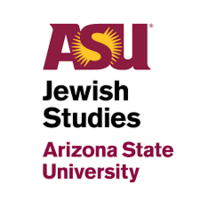
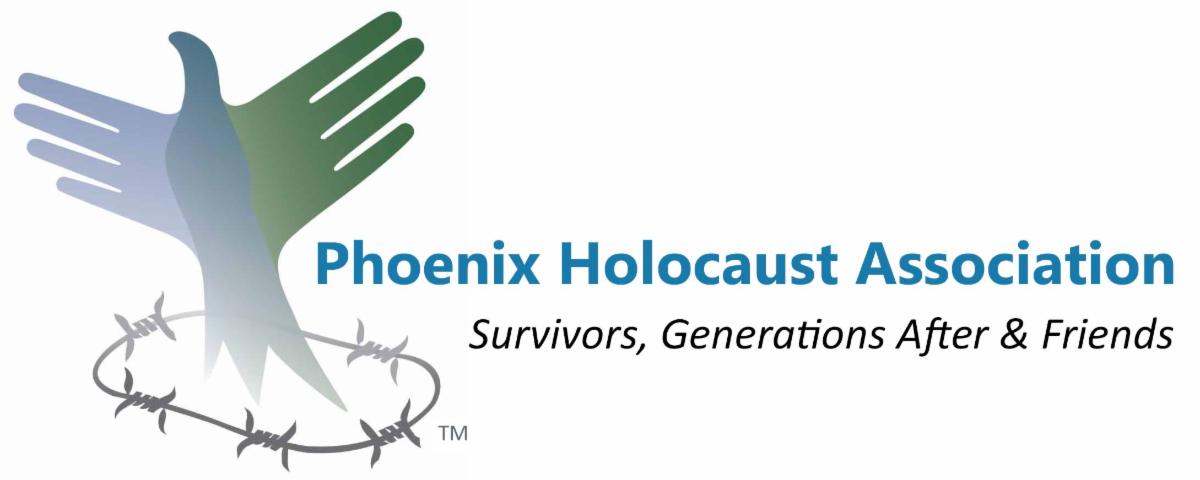
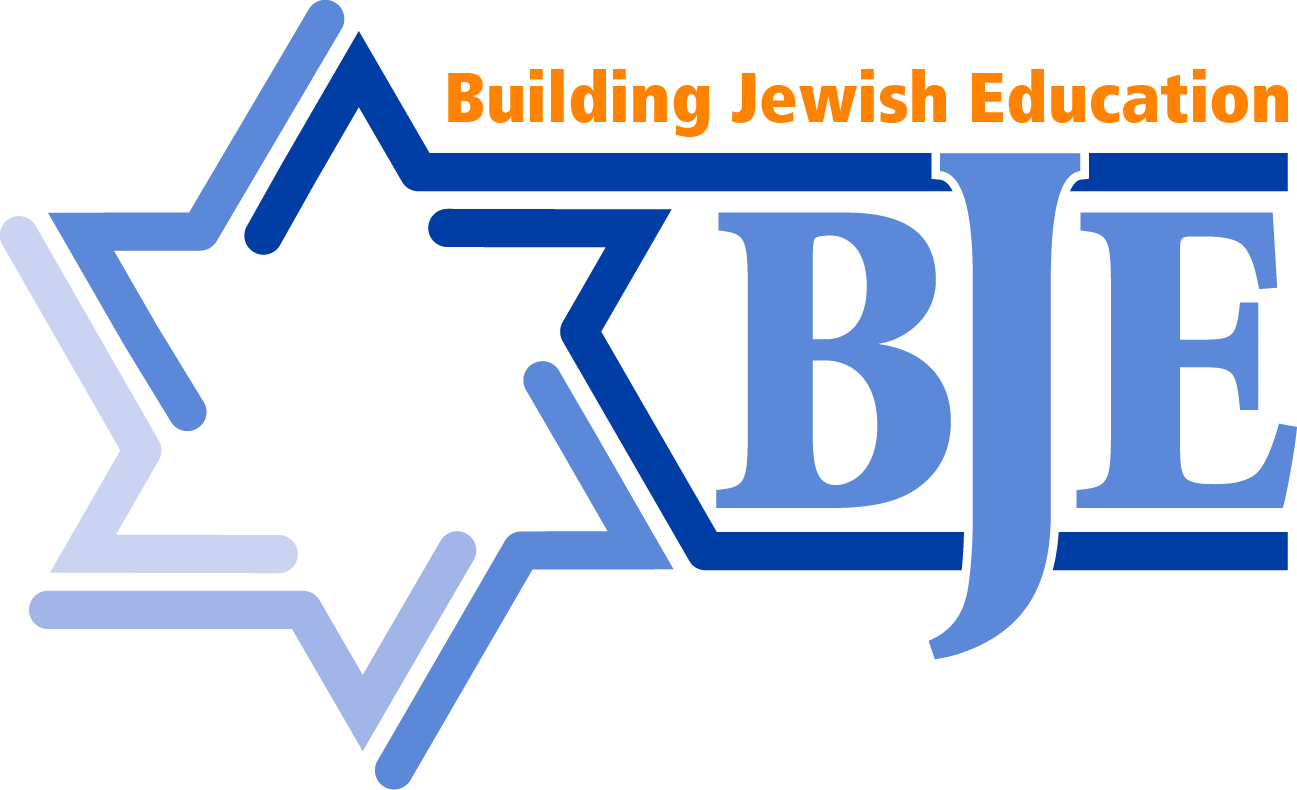

Visit Information
We will be starting off at 10:00 am with registration and check-in, so come early and mingle with the other attendees.
Parking is available at Tempe Fulton Center (707 S. College Ave., Tempe, Arizona 85281). This is a .4 mile walk to Mirabella.
If the sign shows CLOSED at the garage entrance, inform the attendant you have a reservation for "Educators Conference on Holocaust". You will be allowed to pull a ticket, select an available space and proceed to the event. If the attendant has stepped away from the entrance to assist another guest, pull to entrance and use the Intercom and inform the attendant you have a reservation "Educators Conference on Holocaust" and they will dispense a ticket.
Parking validation is available at registration check-in for any teachers who show school ID.
If you plan on using the light rail or another form of public transportation, please see more information here.
The buildings the conference will be in are mapped out here. (Parking and buildings are circled in blue and entrances are indicated by the red arrow.)
